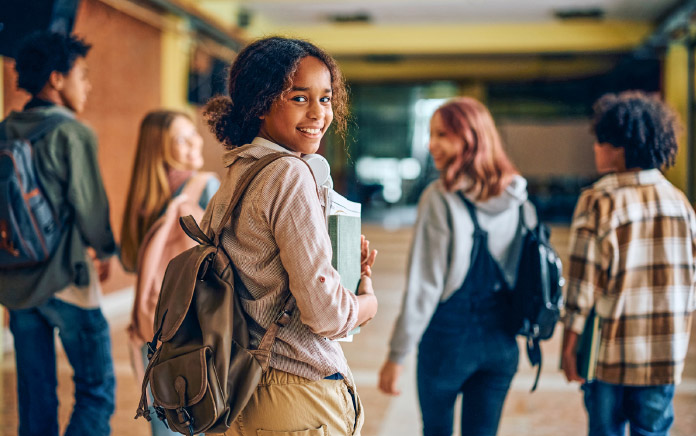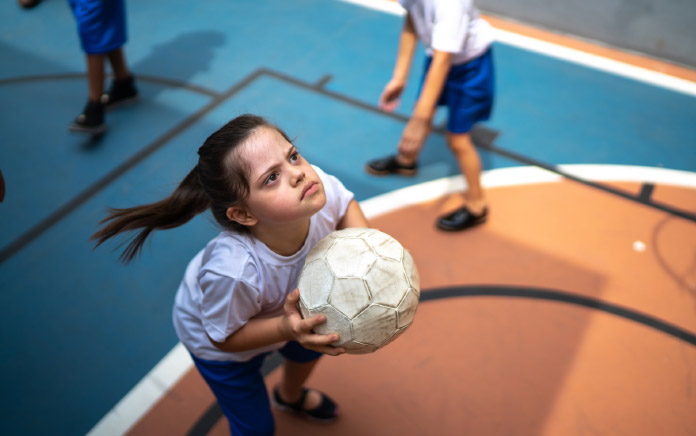Parenting columnist Ouiam El Hassani shares her thoughts on the three skills your child needs to thrive and have a successful school year.
During the back-to-school season, many of us are busy scheduling kids’ haircuts, buying sized-up trainers, and procuring mechanical pencils and spiral notebooks. But the true key to setting kids up for success in school isn’t found at a stationery store. Children will thrive in school (and in life) if they carry with them the ability to be courageous, determined and reflective.
As parents, our job is to nurture our children’s self-awareness and practice of a number of skill sets so a courageous, determined and reflective disposition becomes part of their identity at school and beyond.
For a better understanding of the three skills needed for a successful school year:
Being Courageous
When we think about being courageous, images of strength and bravery may come to mind. But being a courageous learner is not so much about traditional bravery. For success in school, children must embrace challenges and stretch themselves to try new things. Science shows that we learn best when we are in our zone of proximal development, operating at the edge of our abilities. Courage is the fuel that propels us beyond our comfort zones, enabling us to engage with difficult content, explore unconventional ideas and grow.
Being Determined
The traditional meaning of being determined by persevering until you reach your goal works for learning. When we are in our zone of proximal development, chances are, we’re going to make mistakes. Being a determined learner means viewing those setbacks as opportunities to learn. Because mistakes show us exactly where we can improve, they can be powerful learning tools that help move us toward our goals… often even faster than if we’d gotten things right the first time. Understanding that mastery requires effort can fuel our determination and enable us to lean into learning.
Being Reflective
Kids’ tendency in school is often to rush to completion and quickly move on to the next thing. Being a reflective learner means taking time to think about our educational experiences: a project, a performance, an athletic event and consider what did and didn’t go well in order to better prepare for the next opportunity. Stopping to reflect helps us get to know ourselves as learners, cement new skills and find something meaningful to try next. As kids get older, learning to seek and apply feedback can amplify their ability to improve themselves and their work.
Mastering the Mindset
Supporting kids to be courageous, determined and reflective in these ways requires a growth mindset, understanding that skills and intelligence are developed and not inherited/set — that people are generally good at something because they have cultivated their abilities over time and those who are not just haven’t dedicated the time. Recognising that we are in control of our abilities enables us to focus on the process of learning and growing — encouraging us to stretch ourselves to try new things, persevere until we reach our goals and think about what we can take from each experience.
Here are some things you can do to make sure your children are poised to practice and grow these three superpowers:
 1. Name and Recognise
1. Name and Recognise
While the abilities to be courageous, determined and reflective live within every kid (and each one of us), developing the mindset we desire requires self-awareness and practice. Talk to your children about these three words, help them understand their meaning (for example, what being determined does and doesn’t look like in a particular situation), and how and when to practice each. Then, regularly recognise them for their practice, describing the behaviour. For example, “I know it took a lot of time and effort to complete your maths homework, great job being determined!”
As kids become familiar with these mindset elements and how to use them, they’ll start to recognise and articulate the practices they see in themselves and others.
 2. Lead By Example
2. Lead By Example
It’s incredibly powerful for kids to see their parents trying new things — especially if they’re not awesome at them from the start. For example, if you’ve always wanted to learn to draw, get a sketchbook and draw for 10 minutes a day. Let your kids see the consistent effort you’re putting in and your artwork. Or sign up to run a 5K, 10K or a marathon (whatever’s just outside your comfort zone).
 3. Embrace The Power of ‘Yet’
3. Embrace The Power of ‘Yet’
Using the words ‘not yet’ as a powerful way to reframe kids’ learning efforts: It’s not that they can’t do something, they just can’t do it yet. Remind your child that almost no one is great at something the first time they try it. So if they don’t immediately excel at a new thing, the good news is that they’ll be a little better at it the next time… and even better the time after that.
This season, as you check off all the items on the school supplies list, remember that the most critical tools your kids need don’t fit in a backpack. Set your intention to teach your children what it means to be courageous, determined and reflective. Help them grow these mental superpowers and learn how to wield them for a successful school yea and a fulfilling lifetime of learning.





